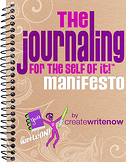 My fortune cookie from Chinese takeout last night gave me an intriguing message: “The best response to anger is delay.”
My fortune cookie from Chinese takeout last night gave me an intriguing message: “The best response to anger is delay.”
No overstatement there, huh? Plain and simple. If you are angry, hold off on expressing it. Is it a long time later and you’re still mad? Okay, figure out a way to bring up your grievances.
But if you have recently snapped, if your anger is fresh, put a lid on it.
Now if that seems harsh to you, I definitely understand. It’s the very nature of anger to want to express itself, to want to strike out and seek vengeance. To be asked to zip your lips is offensive. But yes, it’s the right thing to do.
Now mind, this applies only if you’re interested in doing the right thing, the loving and peaceful thing. If you are bent on getting even, you can stop reading now. But if – despite your hurt and pain and the unbelievable affront of it all – you ultimately want harmony in your life, please bear with the program here.
Hush up. Turn around and walk away. Plug your ears and shut your eyes if necessary. Roll up in a ball and cry. But do not voice your anger.
Why do I say this? Only out of love for you, dear wounded one. If you give voice to your anger spontaneously, and lash out at the person who crosses you, you will say things you’ll later regret. In the heat of the moment, ego and pride dominate. Let things lie a while and a more rational viewpoint will begin to prevail.
But all this is not to say that it’s good to ignore your anger. Au contraire, expressing it and teasing out its meanings is crucially important. But these things must be done in your journal, rather than in person-to-person confrontation, at least at the beginning.
Dump your anger with all its expletives, righteous indignation, and toxic barbarity into your journal’s pages.
Then start asking questions:
- Am I to blame for this schism between me and the other person, or is the other more guilty, or are we both equally responsible?
- Is there a way to mend?
- Do I even want to continue the relationship?
- Who will initiate a healing process? What tactics might work?
- What has this connection meant to me in the past? Is it important to my future?
- What’s the most healthy path to take from here?
- And, probably the most important question: Where is the love, even in this situation?
Let your journal writings hold all the expressions of your anger until you can think about the person and what happened with far more calm in your heart. Has the lump in your throat diminished, does your breath stay even and light, are you able to look the other in the eye with compassion? Only then is it time to speak your mind out loud.
Until then, journaling lets you be your true self without losing your soul.
###
 Would you like to know more about the fundamental power of journal writing? Read about journaling for renewal, inspiration, and therapy in The Journaling for the Self of It Manifesto.
Would you like to know more about the fundamental power of journal writing? Read about journaling for renewal, inspiration, and therapy in The Journaling for the Self of It Manifesto.

Leave Comment